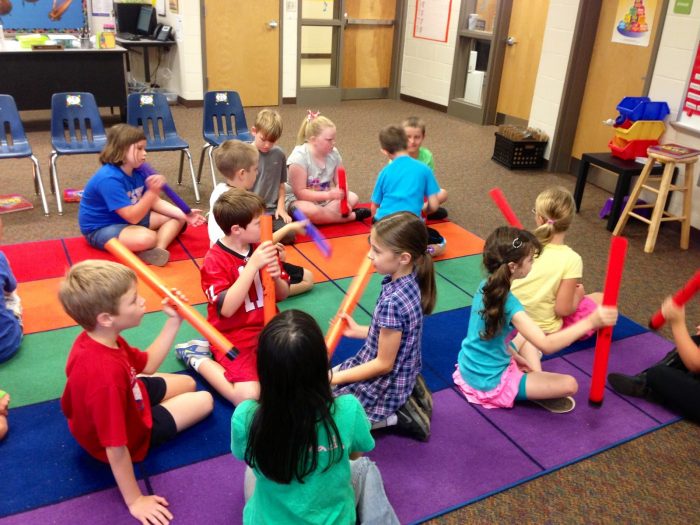Boomwhackers study suggests Music Training can help with Autism and ADHD
According to research undertaken in Mexico with Boomwhackers, taking music lessons increases brain fibre connections in children and may be useful in treating autism and Attention Deficit Hyperactivity Disorder (ADHD).
“It’s been known that musical instruction benefits children with these disorders,” said Dr. Pilar Dies-Suarez, chief radiologist at the Hospital Infantil de México Federico Gómez in Mexico City. “When a child receives musical instruction, their brains are asked to complete certain tasks. These tasks involve hearing, motor, cognition, emotion and social skills, which seem to activate these different brain areas.”
The study was presented at the annual meeting of the Radiological Society of North America (RSNA) in November 2016. The researchers studied 23 healthy children between the ages of five and six years old. All of the children were right handed and had no history of sensory, perception or neurological disorders. None of the children had been trained in any artistic discipline in the past.
The study participants underwent pre- and post-musical-training evaluation. After the children in the study completed nine months of musical instruction using Boomwhackers—percussion tubes cut to the exact length to create pitches in a diatonic scale, the results showed an increase in fibre lengths and connectivity in parts of the brain where low connectivity can be associated with autism spectrum and ADHD.
“”When a child receives musical instruction, their brains are asked to complete certain tasks,” said Dr. Dies-Suarez. “These tasks involve hearing, motor, cognition, emotion and social skills, which seem to activate these different brain areas. These results may have occurred because of the need to create more connections between the two hemispheres of the brain.”
The researchers believe that the results of this study could aid in creating targeted strategies for intervention in treating disorders like autism and ADHD.
